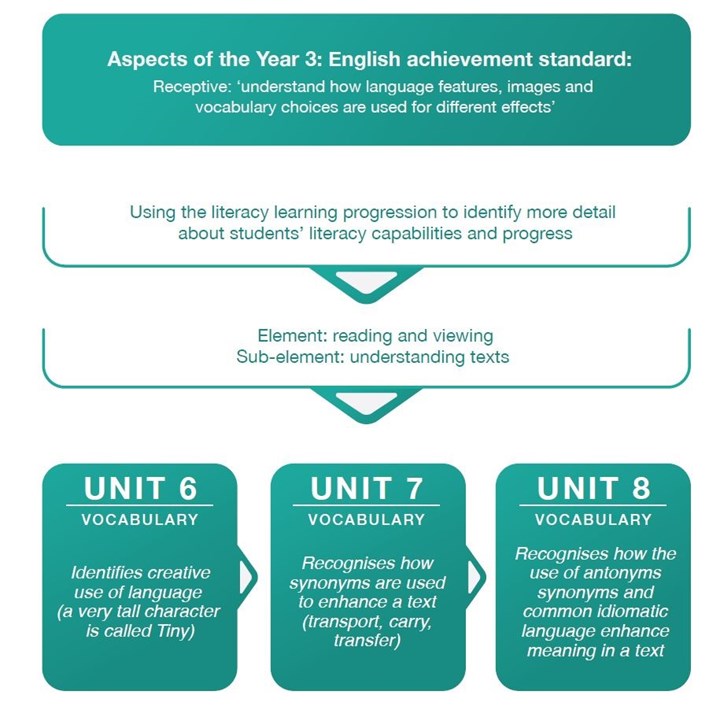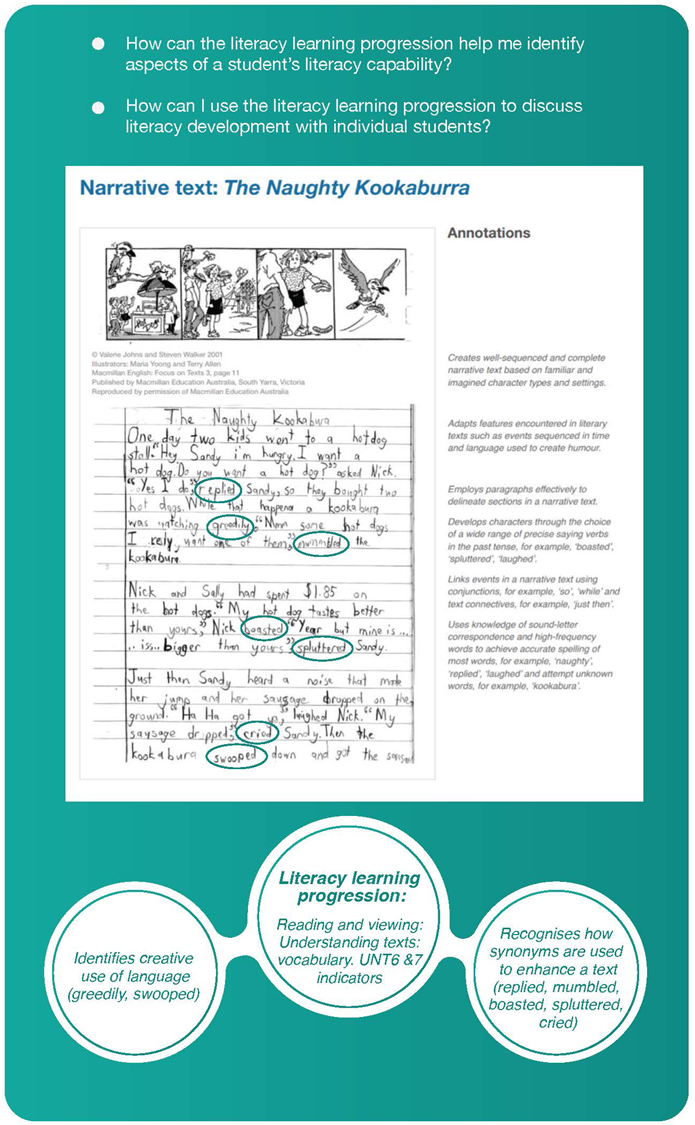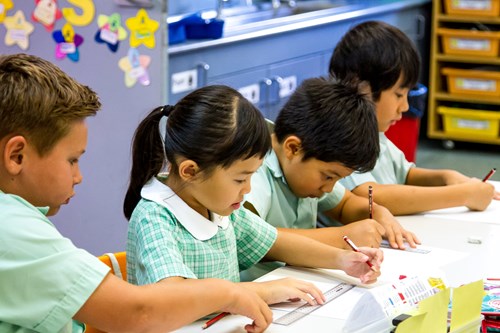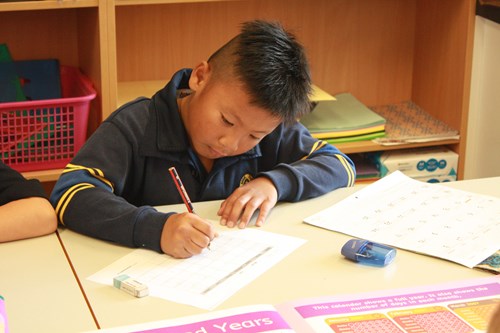 Denise Roberts is ACARA’s new Curriculum Specialist: English. Denise has over 25 years of experience in schools teaching English and literacy, guiding and mentoring students and teachers.
Denise Roberts is ACARA’s new Curriculum Specialist: English. Denise has over 25 years of experience in schools teaching English and literacy, guiding and mentoring students and teachers.
By Denise Roberts, ACARA Curriculum Specialist: English
I believe the study of English offers students a scope to refine their skills of reflection, critical thinking and creativity. It provides opportunities for both collaboration and independent endeavours. It builds in students the capacity for empathy and understanding of experiences beyond their immediate world.
The literacy learning progression ties seamlessly to the teaching of English. For teachers, it is a powerful and effective tool to identify each student’s current level of learning and to guide teaching adjustments that respond to diverse rates of learning within a class. For students and their parents, the progression is a way to experience learning as a journey with sequential steps, and it builds understanding that literacy learning can be achieved at an individual pace.
Teachers might choose to use just one indicator of the progression’s sub-element to assess the learning stage and needs of individual students and then track their development. The progression can be integrated with the achievement standards to provide a clear picture of how a student develops a skill.
For example, in a Year 3 classroom, development of the receptive modes may focus on one aspect of the achievement standard: that students will ‘understand how language features, images and vocabulary choices are used for different effects’. The literacy learning progression is a valuable companion tool in creating a more detailed picture of a student’s development. A teacher could select the ‘reading and viewing’ element, the ‘understanding texts’ sub-element and the ‘vocabulary’ indicators to observe how students develop in a typical pattern as illustrated below:

The literacy learning progression provides a level of granularity that offers clear guidance for teachers and evidence of mastery for students.
Using a work sample to identify additional detail about a student’s vocabulary in a Year 3 work sample:

Teachers often use work samples to collect evidence of student learning against the achievement standards. Work samples can provide additional information in relation to student progress in literacy, and in this case, vocabulary development.






 Denise Roberts is ACARA’s new Curriculum Specialist: English. Denise has over 25 years of experience in schools teaching English and literacy, guiding and mentoring students and teachers.
Denise Roberts is ACARA’s new Curriculum Specialist: English. Denise has over 25 years of experience in schools teaching English and literacy, guiding and mentoring students and teachers. 












